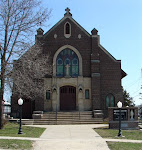My question is based upon a conversation with a friend. She and her family are non-denominational/Pentacostal. Her son is attending Mt. Marty in Yankton, a Catholic college. A professor of his, in his religion class, has stated that some of the writings of the Old Testament were not necessarily true but teach the lesson in a fictional manner. They took offense to this and I have been asked about this and I unfortunately don’t know what to tell my friend. What is our belief about this and what exactly are those things that are considered fictional?
Thank you and have a great day/week!
Patti
Patti,
I know nothing about the nature of the Catholic college or the
orientation of the professor you mention and where they fall on the
scale of faithfulness to the Church. However, even if we presume them
to be orthodox Catholics, chances are your friend would probably still
have difficulty with what was taught. This is because Catholics and
Protestants have a fundamentally different understanding of the Bible.
However, because many Catholics don't know their Faith they by default
assume the Protestant understanding of Scripture which has so
influenced our culture. While different Protestant sects may have
different understandings of the Bible I sense from what you tell me
that your non-denominational/Pentecostal friend has more or less a
fundamentalist or literal understanding of the Bible. This is not the
Catholic understanding.
We recognize that there are many different literary types in the
Bible. There are indeed historical accounts in the Bible (Joshua) but
there are also the Psalms as songs as well as poetry, prose and wisdom
literature. Acts and the Epistles of the New Testament are surely
reliable historical accounts. While the Gospels recount Jesus ministry
with some variance we do believe the accounts, including the miracles,
to be true. Yet, we also see in apocalyptic literature such
as Daniel and Revelation highly symbolic accounts not meant to be
taken literally. Genesis teaches us the truth of God's creation of the
world outside of the question of if it really happened as written. The
book of Job teaches us about being faithful to God in all
circumstances in a highly literary form.
In sorting through all of this we need recourse to authentic Biblical
scholarship rooted in the teaching authority of the Church. For the
Catholic understanding of scripture, as opposed to Protestant, is that
the the Church gave life to the Bible in it's canonized form and the
Bible, as one it's three pillars along with along with the Teaching
Magisterium and Tradition, gives life to the Church. The Church
authoritatively interprets scripture for us and how to approach it.
This is why as Catholics we need to read from a Catholic Bible with
it's accompanying notes. Your friend more likely understands the Bible
as the sole rule of faith and feels free to interpret it on their own
without recourse to any higher authority. While as Catholics we are
free, and indeed encouraged, to read Sacred Scripture we need to
recognize the Bible in it's authentic place in the life of faith in
the context of the Church. Perhaps your friend would be well served to
read a book on the Catholic understanding of the Bible. One such
choice would be "Inside the Bible" by Fr. Kenneth Baker from Ignatius
Press.
Fr. Pisut

